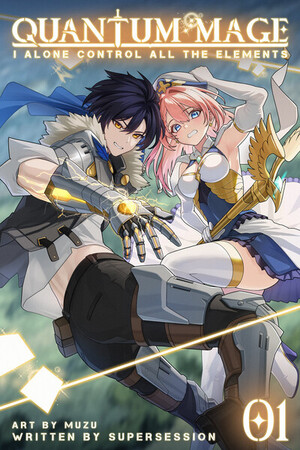Chapter 1:
.Prayer
Brown Sugar Cinderella
Yogyakarta, Indonesia.
Malioboro. A place that stands as a pillar of literature and culture; a trace of Yogyakarta’s long journey through the Sultanate, colonialism, and the struggle for independence. Now, it has become both a cultural and economic icon.
Once, Malioboro was the main road for the Sultan and nobility. Royal processions, receptions for honored guests, celebrations of important events—all were held there. But in the 19th century, the arrival of the Dutch East Indies transformed it drastically.
European-style buildings appeared—government offices, officials’ residences, grand colonial shops—reshaping Malioboro into a fusion of Javanese and Western architecture.
That fusion gave Malioboro its unique identity. What was once a road for royal carriages and palace retainers slowly became a bustling center of trade, a living gallery of Yogyakarta’s evolving history.
Along this 3.5 km stretch from south to north, I walked—savoring, remembering, and bidding farewell to a place cherished by locals. But for me, it was where I buried all my past wounds.
Under the soft glow of the streetlights, I walked slowly, letting my steps dissolve into the crowd.
In my hand, I held a pack of warm pukis—cakes I had planned to share with someone. Someone who, unbeknownst to me, was celebrating her engagement tonight.
A quarter of the way, at a familiar corner where an old beggar usually sat, I saw him again—frail, lying on a worn mat, as if waiting for death to claim him.
Without a word, I handed over the warm kue pukis that I'd been holding, along with a few hundred-thousand rupiah left in my wallet.
Seeing the amount of money I'd slipped beside him, the old man jolted from his slumber. His dim eyes slowly widened, then looked at me hesitantly. "T-This is too much..."
His hand trembled as he reached out, trying to return the money. But before his hand could fully extend, mine gently held it back. I simply replied with a thin smile, then nodded slowly.
Seeing my quiet, restrained expression, the old man slowly withdrew his hand. With a raspy, barely audible tremor, he said, "M-May what you wish for come true, and may you be granted a long life... Amen..."
I could only lower my head; my eyes narrowing—trying to hold back the sting that was welling up. There was a fear, perhaps that if I allowed that irony even for a moment, tears would surely fall before I even realized it.
...
I walked on, reaching halfway down the street, and stopped at a spot I knew well—where street theater used to be performed.
To my surprise, it was still there, though different now. Simpler, less lively, with only a handful of spectators.
Judging from the costumes, perhaps it was Cinderella—or maybe the local folktale Bawang Merah Bawang Putih. Hard to tell, both share the same pattern; a kind girl oppressed by her stepfamily, rewarded later with a miracle. People often blur their elements, until the line between East and West becomes faint.
From across the street, I sat and watched for a while. Just a few minutes, but long enough for memories to stir—memories of watching this very play with my parents, on this very street, with smiles and laughter that now feel like faded sketches. Before everything changed. Before separation rewrote it all.
No—I never hated them. Not at all. I still love them, always. Even if lately they rarely ask about me, rarely call, even for trivial things.
But I understand. Truly. They have new lives now—new families needing all their attention. Their time, their priorities, have shifted. I don’t blame them.
The older I got, I started to realize something I perhaps never wanted to admit. That maybe my presence in this world was merely a remnant of their long arguments—a lingering trace of a love that grew without foundation, a marriage unprepared with emotional maturity or spiritual wisdom.
And when that love collapsed—the fruit of a couple's selfishness, failing to set aside their egos for wholeness, choosing instead to cling to an illusory happiness; plucked prematurely before it was fully ripe, then left to slowly rot, trapped in a dark.
Now, I was just a leftover piece in the diagram of their love—a small part that once held them together, but now felt like a bothersome remnant. I was in the middle, not fully belonging to anyone, stuck in a nameless gray space.
...
Lost in thought, I failed to notice someone nearby—a street musician, a young woman playing the kalimba. The soft notes crept into my awareness.
Startled, I turned. She met my gaze instantly, smiling gently.
"Sir, do you want to request a song?" she asked warmly, her voice flowing with the melody.
I gave a faint smile, pulled out my wallet hesitantly. Luckily, a few fifty-thousand bills remained. I handed one to her.
"Whoa... What song would you like to request, Sir?" she asked cheerfully, then sat right beside me, legs together, kalimba on her lap, ready to play.
"Sir?" she asked again, softer this time, trying to draw my attention. But I only stared at the street theater ahead.
Truth is, I wasn’t in the mood to talk. Not because I was apathetic—just that sometimes, even in a crowd, one longs for solitude. Not isolation, but that thin line between loneliness and peace.
Sensing my silence, she didn’t press. Instead, she began playing, filling the space with gentle notes that blended perfectly with the night.
“You like that play, Sir? I’ll play something that fits the scene,” she said softly.
Her fingers danced, and the melody that came out was one I knew instantly—Dealova, once sung by Once. Coincidence or not, it was the song my mother often hummed while knitting little dolls from leftover yarn.
I smiled faintly. This girl had taste—reading the moment, weaving sound with emotion. Not every street musician could do that.
The way the melody merged with the scene was uncanny—transforming it into a powerful melodrama, seeping into my chest.
Each note carried bitterness. My eyes burned. Words, emotions, memories—all gathered at once, and I sat frozen, fighting tears.
On stage, a prince knelt before a maid—who was, in truth, the princess he’d been searching for. A simple scene, but with that melody, it struck deeper. My chest tightened.
I saw myself in that maid. Both of us struggling through life, walking silently over wounds we never chose, enduring pain we could never escape.
Yet behind the forced smiles, we still walked on, clinging to the same fragile hope—that someday, somehow, happiness might come.
But here lies the difference. In that story, the maid found her happiness. While I… I doubt I’ve ever truly known what happiness is. It feels abstract, unreachable—almost impossible. Perhaps my heart has long been frozen, or maybe it’s already dead.
That’s how the world seems to work—if you're born a man, you are expected to grow into a prince: handsome, valiant, established, and full of charm. Only then, it’s said, are you worthy of love.
But what about an ordinary man? A man with no charming face, and no abundance of wealth? An ugly and poor man like me? I, too, wish to be loved. Not to be saved—only to be accompanied.
But once again, I knew it was a clichéd fantasy, too beautiful to be believed, yet somehow still loved, especially by those who preferred living in the shadows of dreams rather than facing reality.
Even so, I thought there was nothing wrong with holding such fantasies. As long as they remained as flowers of imagination in one's head, never forced into reality, then it was perfectly fine.
Everyone has the right to a small space in their mind to dream, even if their dreams come from stories that may never truly exist. After all, sometimes fantasy is the only place where the world feels fair.




Please sign in to leave a comment.